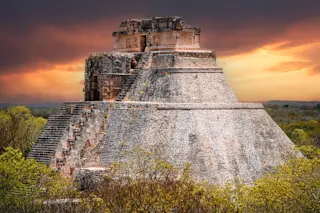Once upon a time, Earth was colder, locked in its latest ice age. Eventually, roughly 14,000 years ago, things started thawing and the planet warmed back up. But that climate change, according to a new paper in Science, caused a major shift in vegetation. And if we don’t curb our fossil fuel use and cut carbon emissions soon, the authors say, we’ll see another big shift in plant life within 100 to 150 years.
An international team of researchers dug through published records of fossilized pollen and plants from nearly 600 locations all over the globe, except for Antarctica. All of these fossils had been dated to a range of about 21,000 years ago — the peak of our last ice age — to 14,000 years ago, right when things starting warming back up.
Then, they compared the vegetation changes they saw in the fossil records with paleoclimatic data to ...














